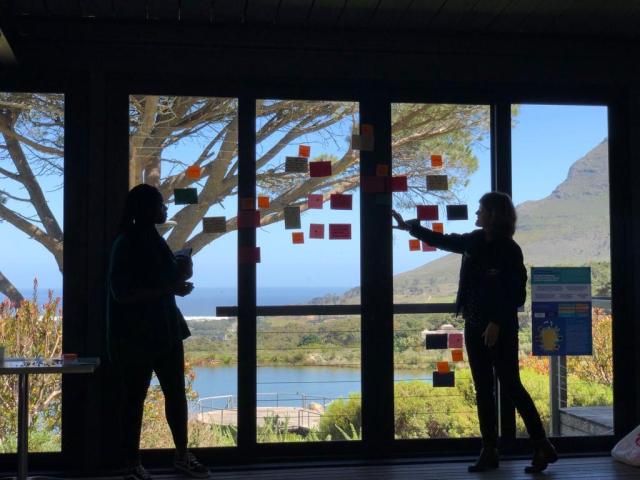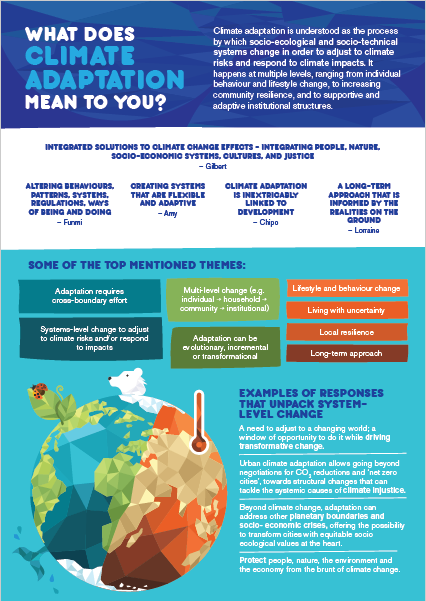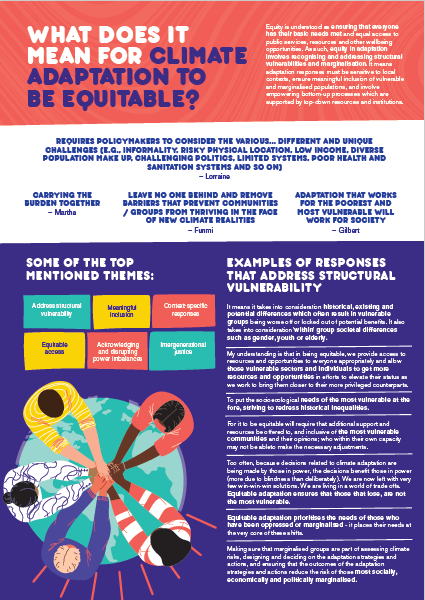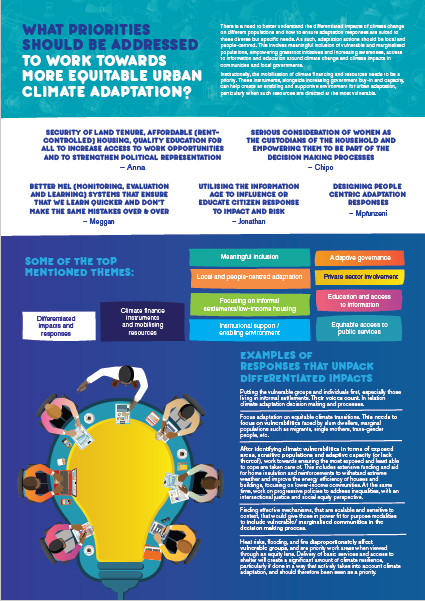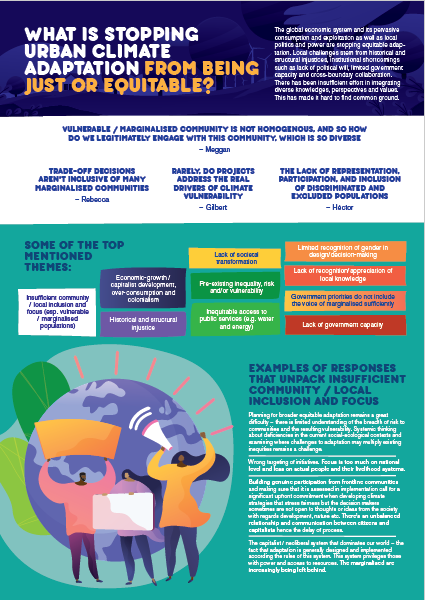ACDI researcher, Gina Ziervogel, hosts workshop on equitable urban climate adaptation
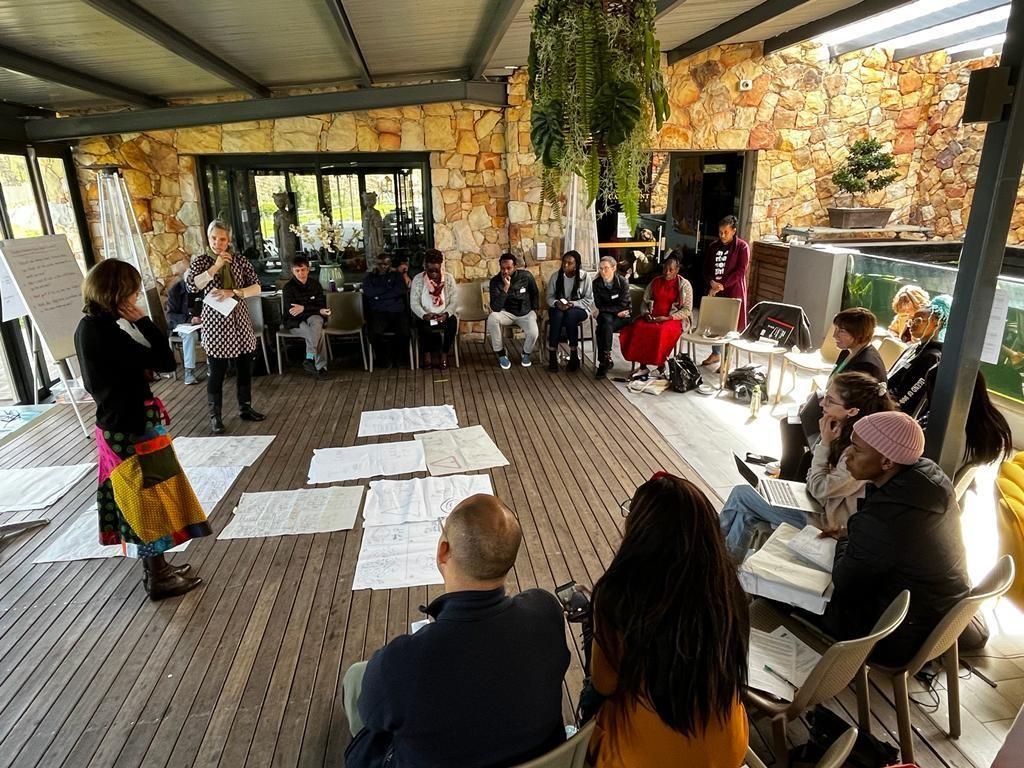
Global climate resilience and adaptation agendas historically have been set by the global north which has created a knowledge gap of the African perspective. The topic of how equity and justice might be better addressed in resilience and adaptation in cities is an emerging question. ACDI researcher, Gina Ziervogel, recently hosted a workshop that aimed to address this gap and put urban climate adaptation equity issues in Africa in sharper focus.
“Moving climate adaptation equity issues into sharper focus for practitioners, researchers, civil society and officials is vital if we are to make progress on designing urban adaptation interventions that really meet the needs of the most vulnerable,” explains Gina Ziervogel.
Hosting a collaborative workshop
The Equitable Urban Climate Adaptation Workshop, hosted by Associate Professor Gina Ziervogel from the Department of Environmental and Geographical Sciences at the University of Cape Town, was held in Noordhoek, Cape Town from the 19th to the 20th of September 2022, funded by AXA Research Fund. The workshop brought together 25 academics and practitioners from around South and southern Africa, and a few from Europe, to explore and collaborate on the main priorities for equitable urban climate adaptation in African cities. Facilitated by Alison McCallum, the workshop provided an opportunity for researchers and practitioners to unpack equitable urban climate adaptation and work together to reveal key priorities, challenges and possible next steps.
“The workshop aimed to foster collaborative thinking to feed into conceptualising and enacting what equitable urban adaptation might look like in African cities,” says Gina Ziervogel, “we wanted to co-produce critical questions and strengthen networks through this collaboration, especially among those working in the academic and practitioner space.”
Before arriving, participants were asked to respond to a number of questions that contributed to a collection of posters shared at the workshop around what people think equitable adaptation might look like, what the priorities are for addressing it as well as what is stopping it from being equitable.
You can click on each poster for individual download
Download the full workshop report here
Highlighting the important questions
On day one, the participants discussed the context within which they work on and what they perceive equitable urban adaptation to be. At the end of day one, a group visit to the women-led Ocean View Organic Farmers was organised to refine questions emerging from the workshop sessions and to ground the discussions in a local lived reality. The women urban farmers, who call themselves the Kos Gangsters, took the participants on a tour of their farm, highlighting both the transformative ways they were building resilience within their community, as well as the ongoing challenges the farm faces.
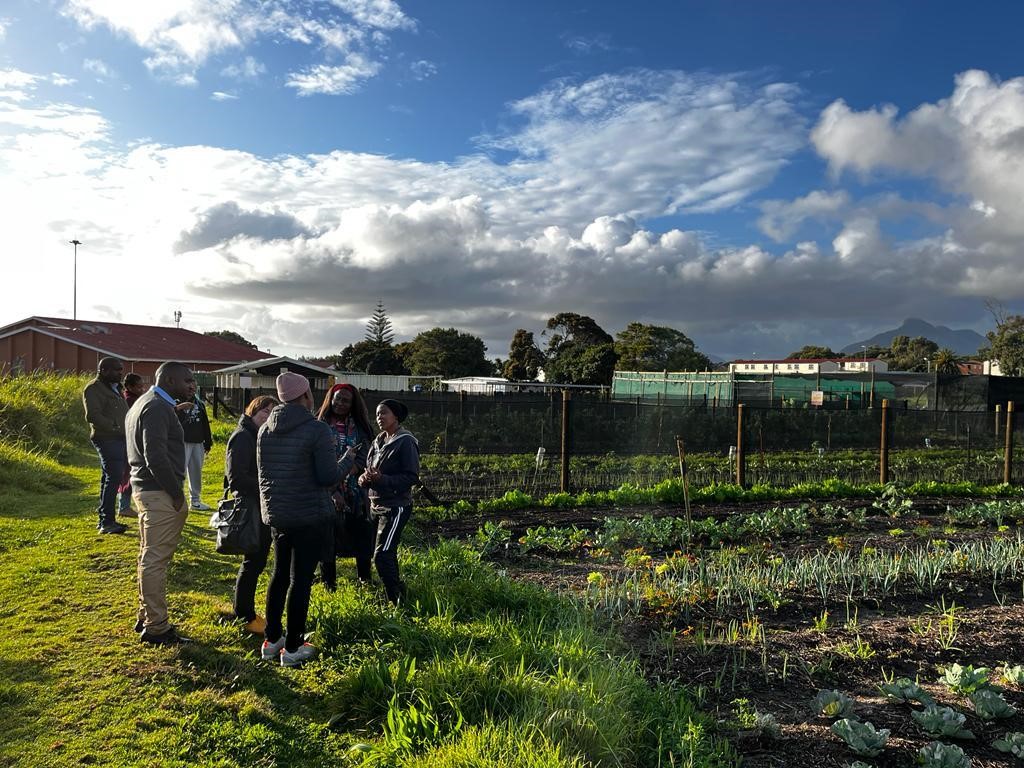
On day two of the workshop, breakout groups of both academics and practitioners worked together to produce a series of questions that revealed the key priorities for equitable urban climate adaptation. Through these questions, four themes were chosen as critical to address for strengthening equitable adaption (see below) and further workshopped in mixed groups to come up with actionable next steps. The workshop concluded with a poem from the resident poet.
“Going forward we are going to produce a series of briefing notes and share resources for continuing to build a community of people across academia and practice that pays more attention to equity in urban climate adaptation,” explains Gina Ziervogel.
Central themes and issues arising as priorities
Structural considerations: This group spoke about the importance of conversations to reframe urban climate adaptation to tackle deep-seeded structural issues in a way that acknowledges historical injustice and trauma. However, they noted that there are several challenges to having these conversations, including the lack of trust vulnerable and marginalised communities have in some authorities. They also felt that climate adaptation programmes should be more responsive to structural economic and social issues and importantly need to go beyond talking and result in positive socio-economic empowerment outcomes.
Context and reality: The focus for this theme was on understanding, acknowledging and addressing the differentiated vulnerabilities on the ground. The group discussed how to incorporate local socio-economic concerns into ongoing projects, proposing to identify existing entry-points by leveraging organisations and forums that already value and assess the realities of the context. This means developing a critical lens on the diversity of vulnerability and engaging with those who are usually left out of targeted interventions.
Quality of relationships: This theme needs to be considered across scales and between different organisations, groups of people, and sectors. The quality of relationships is about collaboration across these boundaries, building trust and making decisions jointly despite different symbolic languages and/or understandings. As such, it is important to reduce top-down decision making which makes decisions about other people on their behalf.
Knowledge brokers: In this group, the discussion revolved around coordinating the exchange and sharing of knowledge and the need to reduce competition between knowledge brokers. They called for greater diversity and inclusivity in the roles of knowledge brokers, with a need to empower more marginalised voices.
